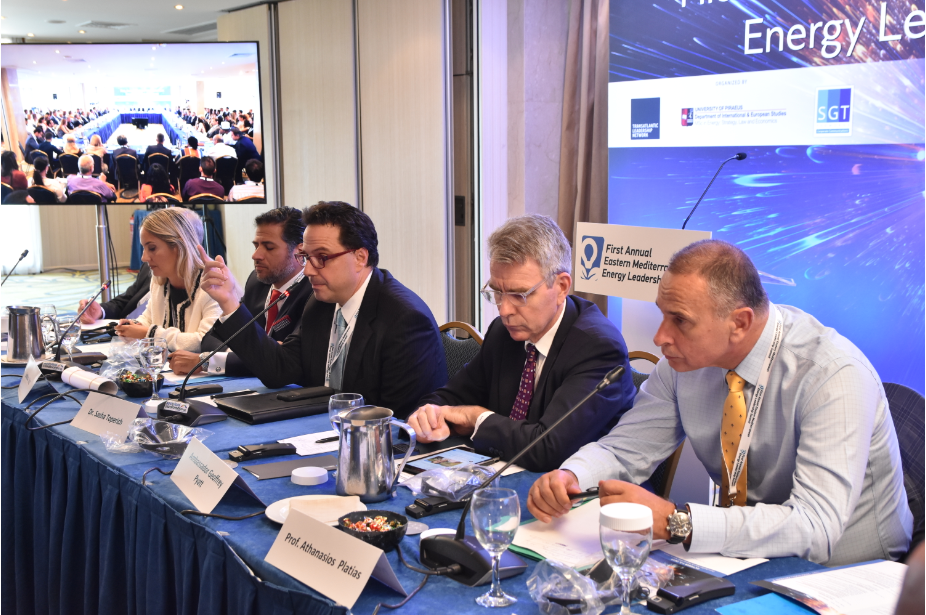İktisadi, İdari ve Sosyal Bilimler Fakültesi Siyaset Bilimi ve Kamu Yönetimi Bölümü Öğretim Üyemiz Doç. Dr. Aylin Ünver Noi, 1-2 Ekim 2019 tarihlerinde Atina’da Doğu Akdeniz Enerji Liderliği Zirvesi’nde “Transatlantic Energy Cooperation; Past, Present, and Future and the place of Turkey in this cooperation”başlıklı sunumuyla katkıda bulundu.
Transatlantic Leadership Network, SGT SA ve Pire Üniversitesi Uluslararası ve Avrupa Çalışmaları Bölümü ortaklaşa düzenlediği zirvenin ilk paneli olan Transatlantik enerji işbirliğinin güvenlik dinamikleri panelinde ABD’nin Yunanistan Büyükelçisi Büyükelçi Geoffrey Pyatt, ABD Dışişleri Bakanlığı Uluslararası Enerji Ofisi’nden Joshua Volz, TLN Kıdemli Uzmanı ve İstinye Üniversitesi Öğretim Üyesi Doç. Dr. Aylin Ünver Noi ve Pire Üniversitesi’nden Prof. Dr. Athanasios Platias sunumları ile katkıda bulundular. Panele Dr. Sasha Toperich’in başkanlık etti.
Doç.Dr. Aylin Ünver Noi’nin sunumunun kısa özeti:
“Transatlantic Energy Cooperation; Past, Present, and Future and the place of Turkey in this cooperation”
“The lower price of US LNG after the Shale Revolution contributed to the increase of US shares and of the energy diversification efforts for both the EU and Turkey. Despite their positive aim, punitive measures that allow the US Administration to impose sanctions to its allies may hinder future cooperation between the US and its European allies. Not so long ago, the US developed energy diplomacy and policy based on the understanding that energy can and should serve as a tool for cooperation and stability. In this context, the Eastern Mediterrnean Gas Forum, which exclude Turkey and Lebanon, cannot fulfil its economic potential and ambition under shadow of continuing disputable maritime boundary issues and without the settlement of Cyprus issue. Without reaching a compromise or agreement through regional cooperation by putting aside political disputes, extracting gas in the Eastern Mediterranean will be either too costly, unprofitable, or risky. Energy should be an important field of cooperation not cause of risk.”



